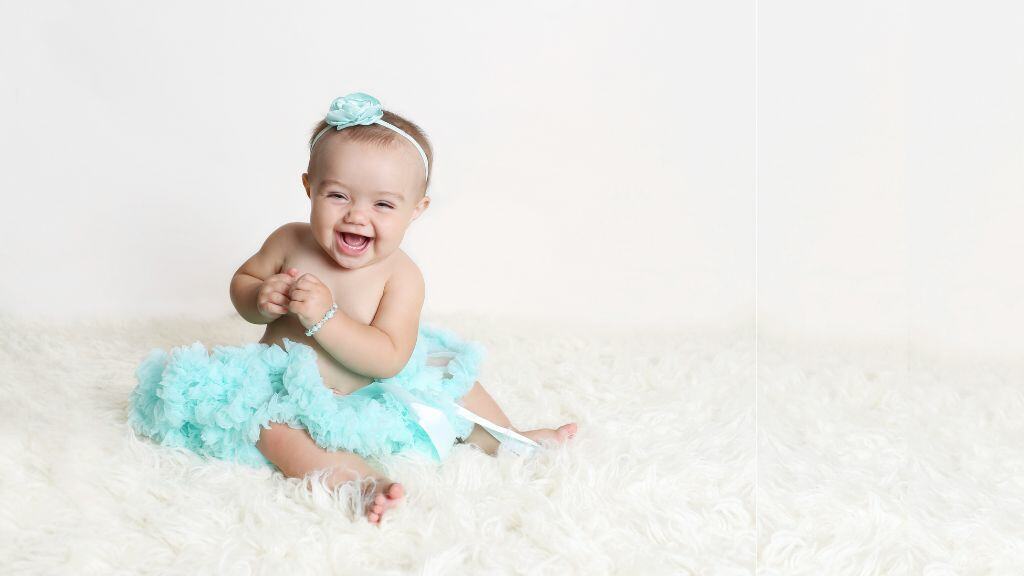
Table of Contents
The first year of your baby’s life is jam-packed with unforgettable experiences, from eating solid food to taking their first steps. Every “first” that your child experiences are a milestone. Every achievement of a milestone gives you the chance to check if your child is progressing and developing normally.
Reaching laughter is a tremendous accomplishment, and you must be, very patiently wondering: when do babies start laughing? Your infant can communicate to you intelligibly by laughing. Your infant is attentive, interested, and content when doing this.
Continue reading to find out when do babies start smiling and laughing and what to do if this developmental milestone is missed.
Baby Milestones: When Do Babies Start Smiling and Laughing?
For the first year of life, babies go through a lot of change. Milestones are the important developmental phases that occur throughout this time.
Each kid will reach their milestones at a slightly different age, however, these developmental phases can be used as a guide. In this way, milestones can aid in your understanding of when to anticipate the emergence of particular behavioral and physical markers.
When analyzing when do babies start to smile and laugh, it’s crucial to keep in mind that newborns develop milestones at varying rates. Although charts are a useful resource, you can discover that your child picks up some abilities sooner or later than anticipated. Milestones are estimates, and there is a certain range for when a baby may achieve notable milestones. But the real question here is: when do babies start to laugh?
When Do Babies Start Laughing?
Most infants laugh aloud for the first time between the ages of 3 and 4 months, while other infants may take a little longer.
Simple things like seeing a favorite toy, animal, or person might cause your infant to laugh for the first time. While it’s enjoyable to hear your baby’s early grins and laughs, she also enjoys hearing her own voice and watching how you respond to her noises.
Your infant could laugh “simply because” once she learns how to do so. After all, laughing feels fantastic and is such a novel sound to produce. Additionally, she is honing her ability to move her mouth and tongue to create various sound effects with each coo and goo.
How To Make Babies Start Laughing?
Now that we know when do babies start laughing, you might be tempted to make them laugh.
If you kiss their tummy, make a silly noise, or swing them up and down, your baby could giggle for the first time. There are more methods for getting your child to laugh.
Funny Noises
Your infant is now aware of your facial expressions and frequently tries to imitate them. Your child could laugh if you create a ridiculous expression, such as opening your lips wide or sticking your tongue out.
A whiny voice, pushing your lips together, or making popping or kissing noises may prompt a response from your child. Oftentimes, these audio clues are more intriguing than a typical speech.
Fun Games
If you play peek-a-boo with your baby at any age, they might not giggle back until they are between four and six months old. At this age, newborns start to comprehend that things persist even if they can’t see them.
Singing
Your baby loves your voice, so don’t mind if it’s a little shaky. Children love songs with silly hand gestures, like “Baby Shark” or “The Finger Family Song,” and laughing is the best kind of applause.
Gentle Touches
Your infant will find it to be a fascinating and novel experience when you lightly tickle or softly blow on their skin. A chuckle may also be elicited by stroking their feet and hands or by “blowing a raspberry” on their tummy.
Although it may seem strange to talk to someone who can just gurgle and make a few vowel sounds, this is how your infant will learn to laugh and use language. Furthermore, by halting mid-patter, you not only offer her an opportunity to speak up and practice her voice, but you also show her how dialogue flows.
Some Points to Remember When Making your Baby Laugh
When talking about when do babies start laughing out loud, it might seem like tickling them can be the easiest way to make them laugh.
But here’s the thing, although it can feel natural to tickle your kid, experts advise waiting until the giggles start happening more frequently before trying this technique. While some newborns like being tickled, it can be painful for some. Therefore, hold off on bringing in the tickle monster until your child is able to talk and express himself or herself better.
Baby emotions and preferences are just like adult moods and preferences. The best chance of getting your baby to laugh is to try it while they are well-fed, rested, and awake. In other words, avoid scheduling giggling hours around sleep.
Seeing a Doctor
If your child appears to have completely skipped the laughing milestone, it may be a clue that something is wrong. Although there is some variation in when newborns accomplish their milestones, it’s important to keep an eye out for any indications of a developmental delay so that, if necessary, early intervention programs may be provided for your child.
They can decide whether more testing is necessary or whether it is sufficient to monitor the problem over the next several months.
Signs to Look Out For
In the first year of your child’s growth, common warning signs to look out for involve:
- Lack of babbling or cooing
- Absence of eye contact
- Not being able to gesture or wave
- Unsteadiness or trembling, uncontrollable movements
- Not smiling or laughing in public
- Bad motor control
Concluding Thoughts
So here’s the simplest answer to your question: when do babies start laughing and smiling?
We frequently don’t know that newborns seek social connection until they grin for the first time, which typically occurs when they are between 6 and 12 weeks old. Their grins convey that they are pleased, cheerful, and appreciative of their surroundings. However, smiling soon develops an audio component and develops into laughing.
But, here is a word of caution — it’s not the same for everyone!
Particularly in the era of parent communities and social media, it’s simple to compare your youngster to others. It might be worrying to discover that the kid of a friend who is the same age as your infant has mastered a specific ability that your infant has not yet discovered.
Yet, if your child is healthy and showing no warning signs of delay in development, try to take a step back and appreciate their own pace. Of course, it’s advisable to see a physician for guidance if you have any queries or worries regarding your infant’s growth.
When Do Babies Start Laughing FAQs
1. At what age does a baby giggle?
2. Can a baby laugh at 2 months?
3. How do I make my baby laugh for the first time?
Reviewed By :

Nimrat Sidhu - Pediatration
Dr. Nimrat S Sidhu is a practicing pediatrician for about 5 years now and holds an MD pediatrics degree. She was the topper of her batch, has always had a keen interest in her core medical field, and is specially trained for neonatal resuscitation.
She has published multiple research papers on pediatrics and is interested in topics like Neonatal care, skincare, baby growth, vaccination, growth, and development.









